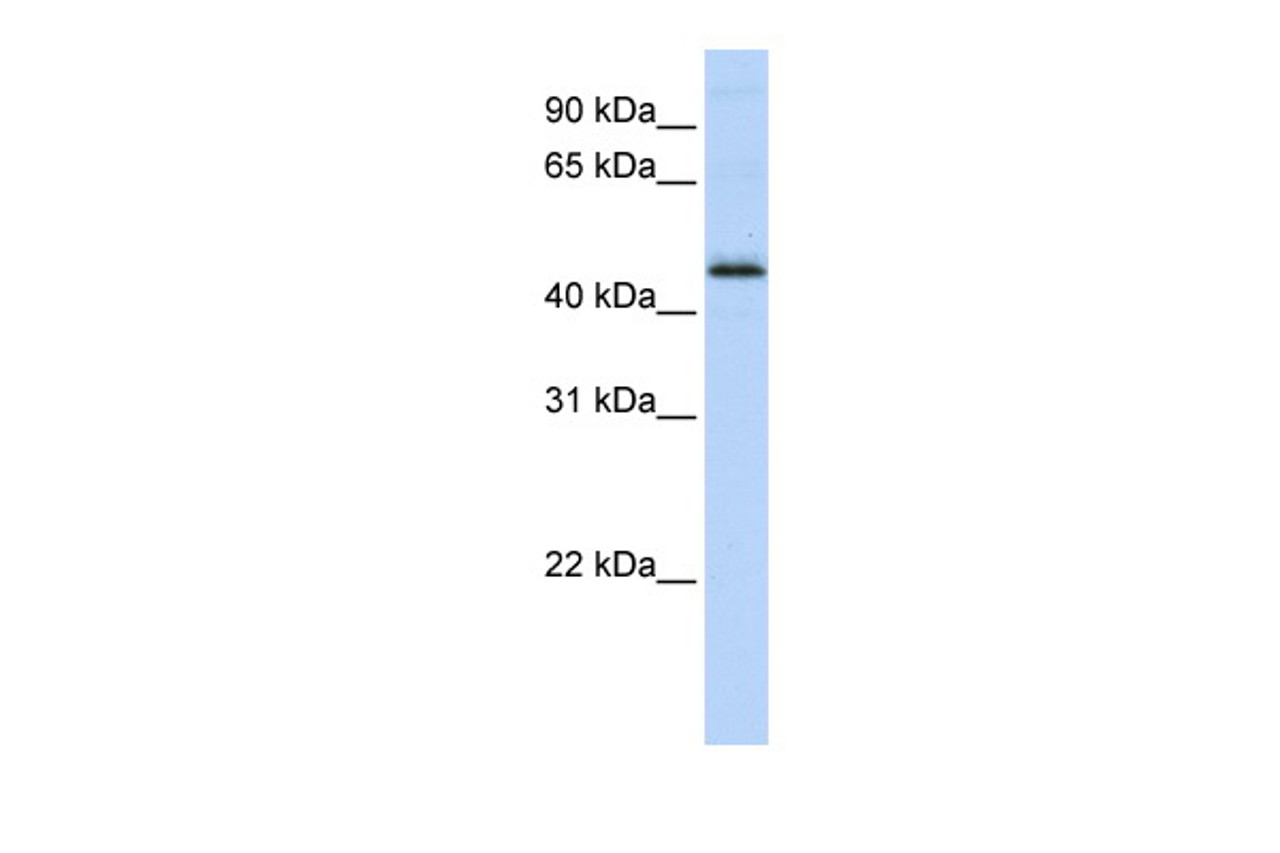Product Description
DEK Antibody | 27-236 | ProSci
Host: Rabbit
Reactivity: Human
Homology: N/A
Immunogen: Antibody produced in rabbits immunized with a synthetic peptide corresponding a region of human DEK.
Research Area: Transcription, Cancer, Signal Transduction
Tested Application: E, WB
Application: DEK antibody can be used for detection of DEK by ELISA at 1:1562500. DEK antibody can be used for detection of DEK by western blot at 1 μg/mL, and HRP conjugated secondary antibody should be diluted 1:50, 000 - 100, 000.
Specificiy: N/A
Positive Control 1: Cat. No. 1219 - MCF7 Cell Lysate
Positive Control 2: N/A
Positive Control 3: N/A
Positive Control 4: N/A
Positive Control 5: N/A
Positive Control 6: N/A
Molecular Weight: 43 kDa
Validation: N/A
Isoform: N/A
Purification: Antibody is purified by peptide affinity chromatography method.
Clonality: Polyclonal
Clone: N/A
Isotype: N/A
Conjugate: Unconjugated
Physical State: Liquid
Buffer: Purified antibody supplied in 1x PBS buffer with 0.09% (w/v) sodium azide and 2% sucrose.
Concentration: batch dependent
Storage Condition: For short periods of storage (days) store at 4˚C. For longer periods of storage, store DEK antibody at -20˚C. As with any antibody avoid repeat freeze-thaw cycles.
Alternate Name: DEK, D6S231E
User Note: Optimal dilutions for each application to be determined by the researcher.
BACKGROUND: DEK is a protein with one SAP domain. This protein binds to cruciform and superhelical DNA and induces positive supercoils into closed circular DNA, and is also involved in splice site selection during mRNA processing. Chromosomal aberrations involving this region, increased expression of this gene, and the presence of antibodies against this protein are all associated with various diseases. Two transcript variants encoding different isoforms have been found for this gene.This gene encodes a protein with one SAP domain. This protein binds to cruciform and superhelical DNA and induces positive supercoils into closed circular DNA and is also involved in splice site selection during mRNA processing. Chromosomal aberrations involving this region, increased expression of this gene and the presence of antibodies against this protein are all associated with various diseases. Publication Note: This RefSeq record includes a subset of the publications that are available for this gene. Please see the Entrez Gene record to access additional publications.
 Euro
Euro
 USD
USD
 British Pound
British Pound
 NULL
NULL










